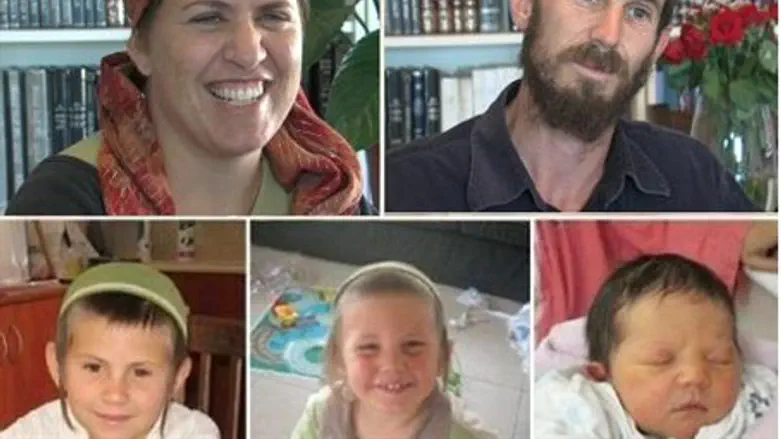
TheMilitary Court of Appeals has accepted an appeal against the leniency of the sentence handed to Muhammed Awad by the Samaria Military Court, over his part in the brutal murder of five members of the Fogel family in March 2011.
Muhammed Awad was originally found guilty of accessory to voluntary manslaughter (the military court's equivalent to murder), failing to prevent a crime, weapons trafficking and conspiracy to carry out a shooting.
The military court acquitted Muhammed of the first, most serious charge, finding him guilty only for failing to prevent a crime, as well as the latter two charges, which he had already plead guilty to.
Awad was sentenced to just five years in jail, as well as to a period of probation and a fine.
The prosecution appealed both his acquittal on the most serious charge, as well as the relatively light sentence he received for those crimes he was found guilty of. The lightness of the sentence was particularly stark in light of the brutality of the massacre itself.
The appeals court opted not to interfere in the original ruling itself, but accepted the petitioners' appeal regarding the lightness of the sentencing handed to Awad. The court asserted that Awad's actions were particularly severe, and thus the maximum possible sentence should have been handed to him. As a result, it ruled that Awad would have to serve another two years - seven in total - before being released on parole.
The mass-murder of Udi (36) and Ruti (35) Fogel, and their three children, Yoav (11), Elad (4), and baby Hadas (three months) in the Jewish town of Itamar in Samaria (Shomron), sent shock-waves throughout Israel. Even in a country often targeted by deadly terrorism, the cold-blooded slaughter of infants and the unrepentant confessions by the killers were seen as particularly appalling, and raised questions over the long-term effects of Palestinian incitement.
The teenage murderers, Hakim and Amjad Awad from the Arab village of Awarta in Samaria (Shomron), were handed multiple life sentences for the attack.